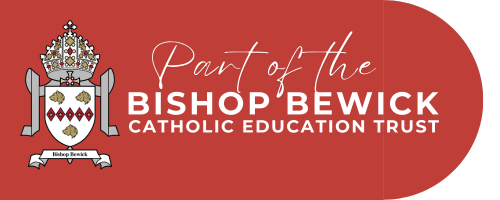
Pupil & Sport Premium

Pupil Premium
The Pupil Premium and Early Years Pupil Premium is additional funding for schools in England to raise the attainment of children and close the gap between groups of children.
Which children are entitled to Pupil Premium?
-
Children who have been registered as eligible for free school meals at any point in the previous 6 years.
-
Children who have:
-
been looked after for 1 day or more
-
been adopted from care
-
left care under a special guardianship order, a residence order or a child arrangements order
How much additional funding does a school receive per pupil?
Schools receive the following funding for each child registered as eligible for Pupil Premium:
-
£1,320 for pupils in reception year to year 6
-
Schools will also receive £1,900 for each pupil who has left local-authority care because of adoption, a special guardianship order, a residence order or a child arrangements order
What difference does Pupil Premium make?
Children from disadvantaged backgrounds are far less likely to get good GCSE results. Attainment statistics published in January 2014 show that in 2013 37.9% of pupils who qualified for free school meals got 5 GCSEs, including English and mathematics at A* to C, compared with 64.6% of pupils who do not qualify.
-
Schools must publish details of how they spend their pupil premium and the effect this has had on the attainment of the pupils who attract the funding. See your child's school website for more details.
-
Ofsted’s school inspections report on the attainment and progress of disadvantaged pupils who attract the pupil premium.
-
School and college performance tables also report on the performance of disadvantaged pupils compared with their peers.
Which children are entitled to Pupil Premium?
Children will be eligible if their parents are in receipt of one or more of the following benefits, which are the benefits used to access eligibility for free school meals:
-
Income Support
-
income-based Jobseeker's Allowance
-
income-related Employment and Support Allowance
-
support under part 6 of the Immigration and Asylum Act 1999
-
the guaranteed element of State Pension Credit
-
Child Tax Credit (provided they’re not also entitled to Working Tax Credit and have an annual gross income of no more than £16,190)
-
Working Tax Credit run-on - paid for 4 weeks after they stop qualifying for Working Tax Credit
-
Universal Credit
Or if they have been:
-
looked after by the local authority for at least 1 day
-
have been adopted from care
-
have left care through special guardianship
-
subject to a child arrangement order setting out with whom the child is to live (formerly known as residence orders)
What difference does Pupil Premium make?
-
National data and research tells us that children eligible for free school meals tend to do less well, for example in 2014, 45% of children eligible for free school meals achieved the expected level at the end of the early years foundation stage compared with 64% of other children
-
The early years pupil premium gives money to schools so they can make sure eligible children have the best possible outcomes when they start school and beyond.
-
Evidence shows that children from less advantaged backgrounds can start school 19 months behind their peers, but that good quality childcare can reduce this gap and have a significant benefit in terms of a child’s development.
We received a letter from Sam Gyimah the Parliamentary Under Secretary of State for Childcare and Education to congratulate us on winning a local award in the key stage 2 category for the Pupil Premium Awards 2016.
An excerpt from the letter states:
"The reason that you have been selected is that you are one of the high achieving schools in the country in terms of the attainment and progress of our disadvantaged pupils since 2011. It is clear that you and your staff have provided your disadvantaged pupils with a good start in life and prepared them well for secondary school. I would like to congratulate your governors, parents and pupils for their hard work and success, and thank you for your leadership in making such a difference to the future success of your pupils."
We are very happy that we have been recognised in this way as we always aim for the very best for all of our children.


PE & Sport Premium
At Sacred Heart Primary School, we believe PE & Sport to be an essential part of education for every pupil. We also believe that the provision of high quality PE and sport has the potential to change people's lives for the better and prepare them for a healthy life in the future.
At Sacred Heart we aim to increase participation in sports and PE and deliver healthy lifestyles by:
-
developing a 'fitness for life' ethos across the whole school community
-
aiming for each child to be a healthy weight
-
improving emotional health and well-being
-
improving the quality of teaching PE
-
developing confidence in staff with the teaching of PE across the school
-
promoting the importance of a healthy lifestyle to all pupils
-
continuing to build on the legacy of the 2012 Olympics and recognize the importance of upholding the Olympic and Paralympic Values across the school
-
Encourage competitive sport across the school through competitions
-
promoting competitive sport outside of school
We have welcomed the Government’s announcement to provide additional funding to improve provision of physical education (PE) and sport in primary schools. We are committed to using this resource in developing high quality PE lessons, alongside greater opportunities for sporting competitions and clubs for all our young people.
Sport Premium Grant Allocation
Funding for schools will be calculated by the number of primary aged pupils (between the ages of 5 and 11) as at the annual census.
What does the Sport Premium mean for my School?
‘Schools must spend the additional funding on improving their provision of PE and sport, but they will have the freedom to choose how they do this’ (DfE June 2013).
We will continue to develop out Sport Premium to raise standards and participation levels in PE throughout the school.

